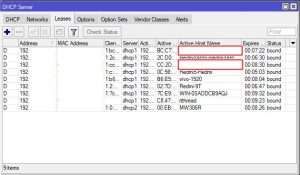Terkadang pada saat proses renewal Certs Letsencrypt sebuah domain muncul pesan error seperti dibawah :
Cert not yet due for renewal
All renewal attempts failed. The following certs could not be renewed:
/etc/letsencrypt/live/example.org/fullchain.pem (failure)kemudian menyusul pesan error berikut :
Domain: example.org
Type: unauthorized
Detail: Invalid response from
https://example.org/.well-known/acme-challenge/Vr1t8IAE2lemQGW_KfkJO2P28xZMgLBkg8h93XkghpQ
[12.34.56.78]: "<html>\r\n<head><title>403
Forbidden</title></head>\r\n<body
bgcolor=\"white\">\r\n<center><h1>403
Forbidden</h1></center>\r\n<hr><center>"
To fix these errors, please make sure that your domain name was
entered correctly and the DNS A/AAAA record(s) for that domain
contain(s) the right IP address.Mungkin secara logika dapat saja dibuatkan folder pada root domain sesuai dengan yang tertera diatas, tapi setelah aku coba ternyata tidak berhasil.
Untuk menyelesaikan itu cukup dengan menjalankan perintah (khusus yang menggunakan Nginx) berikut :
./letsencrypt-auto --nginx -d example.orgApabila pesan yang muncul seperti dibawah, berarti proses telah berhasil dan Certs telah diperpanjang.
Saving debug log to /var/log/letsencrypt/letsencrypt.log
Plugins selected: Authenticator nginx, Installer nginx
Cert is due for renewal, auto-renewing...
Renewing an existing certificate
Performing the following challenges:
http-01 challenge for example.org
Waiting for verification...
Cleaning up challenges
Deploying Certificate to VirtualHost /etc/nginx/sites-enabled/example.org
Please choose whether or not to redirect HTTP traffic to HTTPS, removing HTTP access.
- - - - - - - - - - - - - - - - - - - - - - - - - - - - - - - - - - - - - - - -
1: No redirect - Make no further changes to the webserver configuration.
2: Redirect - Make all requests redirect to secure HTTPS access. Choose this for
new sites, or if you're confident your site works on HTTPS. You can undo this
change by editing your web server's configuration.
- - - - - - - - - - - - - - - - - - - - - - - - - - - - - - - - - - - - - - - -
Select the appropriate number [1-2] then [enter] (press 'c' to cancel): 2
Traffic on port 80 already redirecting to ssl in /etc/nginx/sites-enabled/example.org
- - - - - - - - - - - - - - - - - - - - - - - - - - - - - - - - - - - - - - - -
Your existing certificate has been successfully renewed, and the new certificate
has been installed.
The new certificate covers the following domains: https://example.org
You should test your configuration at:
https://www.ssllabs.com/ssltest/analyze.html?d=example.org
- - - - - - - - - - - - - - - - - - - - - - - - - - - - - - - - - - - - - - - -
IMPORTANT NOTES:
- Congratulations! Your certificate and chain have been saved at:
/etc/letsencrypt/live/example.org/fullchain.pem
Your key file has been saved at:
/etc/letsencrypt/live/example.org/privkey.pem
Your cert will expire on 2020-02-07. To obtain a new or tweaked
version of this certificate in the future, simply run
letsencrypt-auto again with the "certonly" option. To
non-interactively renew *all* of your certificates, run
"letsencrypt-auto renew"
Cara diatas sudah aku coba pada Debian yang menggunakan web engine Nginx … metode diatas sukses.
Selamat mencoba ….


































